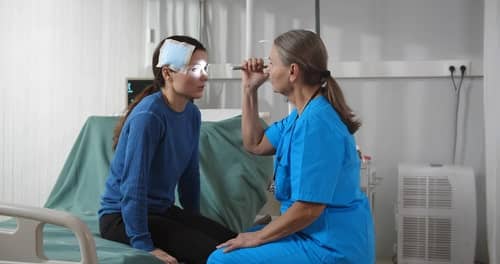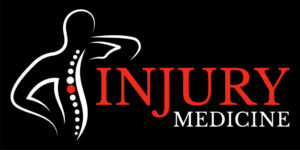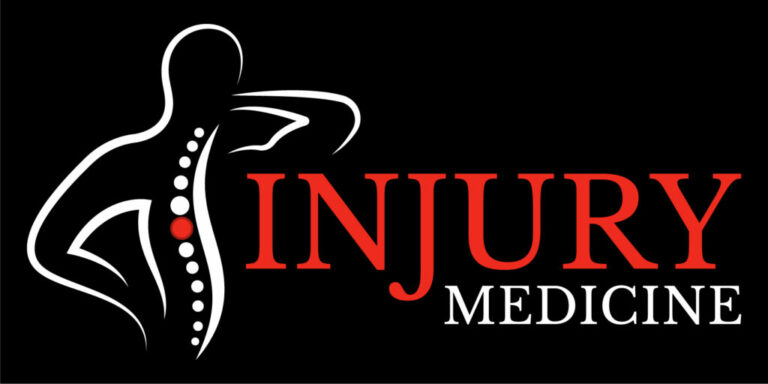A blow to the head can cause a head injury that can affect a person’s physical and mental functioning. According to the Centers for Disease Control and Prevention (CDC), severe head injuries cause over 50,000 deaths annually in the United States.
A head injury can be very serious and may lead to a severe traumatic brain injury (TBI) which can be life-threatening. Seeking immediate medical treatment is crucial for anyone who has suffered a head injury, whether it was due to an accident or any other cause. Injury Medicine is a reliable injury treatment center in Camden, SC that can provide treatment for head injuries.
Our team of experienced medical professionals and physiotherapists are aware of the severity of head injuries and their impact on the patient and their loved ones. We have the expertise to provide appropriate treatment methods for different types of head injuries and can customize a treatment plan that is specific to your needs or the needs of your loved one.
Call Injury Medicine today at 864-866-PAIN for prompt head injury treatment in Camden, SC.
Types of Head Injuries
Here are some of the most common types of head injuries that our team of expert medical practitioners in Camden treats:
Headaches
Headache is often the primary symptom of a head injury. While there are various types of headaches, the most frequently occurring ones are:
- Tension headaches- Tension headaches are caused by muscle tension, spasms, and stress.
- Cervicogenic headaches- Cervicogenic headaches occur when there is an injury to the soft tissues located at the back of the head or neck.
- Migraines- Migraines occur when a particular region of the brain becomes hypersensitive. It can spread to other regions of the brain like waves.
Traumatic Brain Injuries (TBIs)
Sudden impact to the head can cause a traumatic brain injury (TBI) which can have both temporary and permanent effects on the brain’s functioning.
Skull Fractures
Skull fractures occur when there is a break in the cranial bone or skull due to a strong force, such as a fall, car accident, or being hit by an object. Symptoms of a skull fracture may include tenderness, swelling around the impact area, facial bruising, and bleeding from the nostrils or ears.
What Is Traumatic Brain Injury or TBI?
A traumatic brain injury (TBI) is caused by a sudden physical force that damages the brain, resulting in the impairment of normal brain functioning. This injury can occur if the head is violently hit by an object or if the skull is broken due to an accident. In severe cases of TBI, the individual may experience long-term unconsciousness or even fall into a coma.
Facts About Traumatic Brain Injuries
In the United States, more than 1.7 million people experience traumatic brain injuries (TBIs) annually, leading to a “Silent Epidemic.” 75% of these cases are classified as concussions or mild brain injuries, which may not always result in unconsciousness, as only 10% of concussions lead to loss of consciousness.
Visual problems are common in TBI victims, with more than 90% of cases involving some form of visual issue, including blurred vision, photophobia, headaches due to eye strain, difficulty reading, and loss of peripheral vision.
TBI is also a significant contributor to injury-related deaths in the United States, accounting for over 30% of all such deaths, and the CDC reported over 64,000 TBI-related deaths in 2020 alone.
Common Causes of TBIs
The primary cause of a TBI is damage to the brain tissues, which can occur due to a sudden blow to the head. The latest statistics indicate that slips and falls, workplace injuries, auto accidents, sports accidents, and other forms of trauma are the leading causes of traumatic brain injuries.
Treatment for Traumatic Brain Injury
Minor head injuries may not always show symptoms other than pain in the affected area. In such cases, healthcare providers may prescribe pain relievers such as Tylenol (acetaminophen) to manage the discomfort. However, treatment plans for more severe TBIs will depend on the type and severity of the injury.
It is important to monitor your condition even if you have experienced a minor head injury and seek appropriate medical care to prevent it from worsening. At Injury Medicine, our qualified healthcare providers can assess your condition and provide appropriate treatments to address any head injury.
Mild TBI
A mild traumatic brain injury can be managed with rest and over-the-counter medications. However, it is important to closely monitor the patient for any worsening symptoms. Follow-up appointments with a doctor may also be necessary to ensure proper management of the injury.
Emergency Care
Moderate to severe TBI cases require immediate emergency medical attention. This typically involves ensuring the patient has adequate oxygen and blood supply, stabilizing blood pressure and intracranial pressure, and addressing any bleeding or inflammation in the brain.
Hospitalization is often necessary to closely monitor the patient and prevent secondary damage to the brain. Treatment may include medication, surgery, and rehabilitation therapies depending on the extent of the injury.
Medications
- Moderate to severe traumatic brain injuries may lead to seizures, which are caused by abnormal electrical activity in the brain. Anti-seizure medications may be prescribed to prevent further damage to the brain and reduce the risk of seizures.
- Diuretics are a type of medication that can help reduce fluid buildup in the body, including in the brain tissues. This can help alleviate pressure on the brain and prevent further damage.
- Coma-inducing medications may be recommended for severe TBIs since a comatose brain requires less oxygen to function.
Surgery
Urgent surgery is crucial in preventing additional damage to the brain following a moderate to severe TBI.
- Removing Hematomas- Surgery is necessary to remove clotted blood from the brain caused by hematomas.
- Skull Fractures- Surgery is often necessary to repair skull fractures resulting from a moderate to severe TBI.
- Bleeding- Surgical intervention is necessary to halt bleeding within the brain.
- Opening the Skull- Surgery is necessary to relieve pressure from the skull by draining any accumulated cerebrospinal fluid.
Rehabilitation
Individuals who have experienced moderate to severe TBIs may require rehabilitation in order to relearn basic skills such as walking and talking.
Symptoms of a TBI
Some common signs of a traumatic brain injury are:
Diagnosing Your Head Injury
During the diagnosis of a head injury, the doctor will typically perform imaging tests and physical examinations. A complete medical history of the patient will also be obtained. A neurologist may be involved in the evaluation to identify any signs of a brain injury.
Get the Best Treatment for Head Injuries in Camden!
If you have suffered a head injury, seeking immediate medical attention is crucial for proper assessment and treatment. At Injury Medicine in Camden, our team of experienced professionals is dedicated to providing prompt and effective head injury treatment. Call us at 864-866-PAIN to schedule an appointment today.



